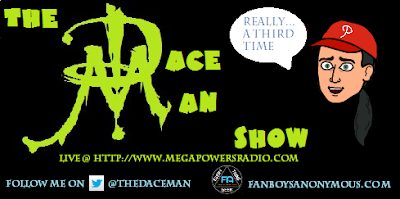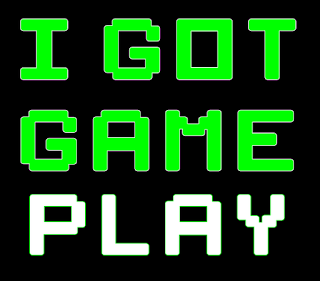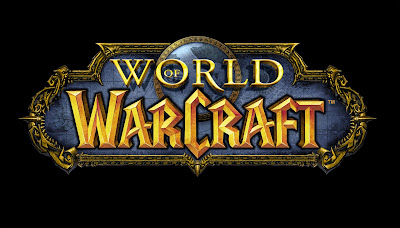Pokemon.........nuff said.
That's all you need. If you grew up in the 90's, chances are you just smiled at the sight of that first word. Pokemon hit the scene in 1998 in America, and seemingly would go on to rule the world from 1998 (or 1996 if you lived in Japan) into the 2000s and today. From games to movies, from cards to toys, to everything in between. Pokemon may not be as massive as it once was, but its still going strong with its upcoming release of X and Y on the Nintendo 3DS. There have been numerous entries in the Pokemon series, as well as several spin-offs of the franchise formula. Some are worth a place in video game history along side its namesake, while others don't have much to speak of. today, I talk about two early branches in the Pokemon series. So grab your Pokemon Pikachu, start humming the Poke-Rap, and strap in, because we talk Pokemon.

The first title on our Pokemon Special is Pokemon Pinball for the Gameboy in 1999, an entry that actually feels right in the series. Considering one of the symblos for the series is a pokeball, it would make sense that they would utilize that for some kind of ball-based game. Even so, it seems like easy pickings to take pokemon and transfer it to a Pinball game. Hell, most Pinball games are just the game of pinball with franchise paraphernalia decals slapped onto them. Instant money, right? Well, to the game's credit, the developers at Jupiter (the developers behind the Gameboy camera, and more recently Kingdom Hearts: Chain of Memories for the Gameboy Advance) actually managed to fuse both the essence of Pokemon with the simplicity of Pinball. The gameplay is simple: you start by picking one of two colored boards (either Red or Blue, with both playing completely different). From there, you choose from a random selection of towns such as Cerulean City, Viridian Forest, and depending on which board you choose, board specific towns like Lavender Town and Mt. Moon. From there it plays like any normal pinball game of knocking your ball into bumpers and other board obstacles to win points all the while keeping your ball from falling into the pit. Lose enough balls, and the game is over. But, hidden among the surface is the real meat and potatoes of gameplay.
In each level your tasked to catch pokemon. you do this by looping your ball around the board in a certain direction and entering a catch pit that triggers a cath game. In this game your tasked with hitting specific bumpers to reveal chunks of a blocked out picture of a pokemon. Once the picture and the pokemon's identity is revealed, you catch said pokemon by bumping your ball into said pokemon on screen until the word catch is spelled and he gets caught in the ball. It sounds alot more complicated spelled out like that, but trust me, its alot easier than it sounds. From there you can travel to other towns by hitting special bumpers enough times to open a travel pipe. Travel enough times and you can even reach more advance towns like the Safari Zone and Cinnabar Island, even going so far as to finally reach the Indigo Plateau. Each new area has a different assortment of pokemon for you to collect, and you even have the ability to evolve pokemon similar to how you catch them, except instead of hitting bumpers you hit exp. charms scattered around the board (or in certain cases, evolution stones). All of this also gets charted into your own Pokedex, where catching them all is the name of the game. Failure to catch or evolve a pokemon leads to a silhouette of said pokemon. Finally there's the biggest feature to the game: the rumble pack. Built into the game's massive black cartridge is a tiny rumble motor that vibrates based on the action on screen. Hit a bumper, you get a tiny buzz, save your pokeball with a Pikachu kickback, and your whole game rumbles. Its a neat feature, though I dare you to find someone who still has the little door that houses the single AAA battery used to power it.
All in all the game really stands above itself. This could have easily just been Pokemon-themed Pinball, but the developers really blended the core of pokemon into a pretty bare format. It still feels like a Pokemon game, and really brings more to the gameplay than just trying to rack up that 5 billion score. It has alot of replay value to it, and really very few faults. If there is one nit-pick I have, its that the design for the red board was clearly made for form rather than function, as while it looks neat, trying to get the ball into certain tunnels is impossible without perfect mastery of ball physics. Its frustrating, but I'm sure with enough practice, you'll get the hang of it.
Grade: B

Next we come to probably the biggest game in the Pokemon series outside of the main franchise, 2000's Pokemon Stadium. Sure, 1999's Pokemon Snap was a neat little diversion, but this was the game fans had been dying for; a full fledged 3D Pokemon game on the consoles. I remember once at a Pokemon Expo the year before the game came out entering in a Pokemon game tournament in hopes of winning a chance to play a demo of the game in private. It was a huge deal, and I'm sure anyone who was a fan of the series had a copy of this in their N64 (hell, at one point I had two copies, don't ask). So it had been years since I had played this game, so I was eager to dust off my old copy of Pokemon Blue (which surprisingly after all these years still has my old file on it) and go through memory lane. Unfortunately years of rose tinting has left memory lane looking less like the autoban and more like a dirt road through the forest. This review is probably not gonna net me any new fans, but I'm just gonna say it: Pokemon stadium is not a good game.
Lets rattle off the biggest complaint I have with the game, and really the biggest I have had with the series in general: Its been a solid 15 years since the first Pokemon Games were released in the US, and yet we still have yet to see a full fledged console release of a true Pokemon game. Sure, we had two attempts on the Gamecube with Pokemon Colosseum with its "Shadow Pokemon" concept as well as the slightly more fleshed out Pokemon XD: Gale of Darkness. But both of those changed the make-up of the series so much that I honestly don't consider them full fledged entries in the series. Maybe you could argue that the N64 at the time was not powerful enough to handle a game that big, but by now the tech is so advanced that its almost come full circle multiple times. Nintendo should really stop dragging their feet and give the fans the experience they have been dying for. But I digress.
Anyway, back to Pokemon Stadium. So this game was not the big console port that we were all hoping for. What we got instead was a battle simulator. The biggest selling point is that you could use the packaged-in Transfer pak to connect your copy of Pokemon Red/Blue/Yellow to the game and upload your own pokemon to Pokemon Stadium. From there, the core of Pokemon Stadium is that you can battle your pokemon from the game on the big screen in fully rendered 3D. And to its credit, the pokemon look really good. From a technical aspect, the game is actually very nice. The menus look hand-painted and cartoony, and the sound is nice and upbeat, with all the familiar tunes from the games fully realized in surround sound. All the pokemon look great in 3D, although one gripe I will give is that it would have been neat to have their voices match the TV show instead of the poorly digitized growls from the game. Although I will say this: if you have Pokemon Yellow, your Pikachu does retain its voice like the TV show, which is a nice touch. No, my biggest issue with the game is the severe lack of gameplay, even with all that you supposedly can do.
Lets start with the actual Pokemon Stadium, which is where the main focus seems to be. In this, you have your choice of 4 different cups you can sign up for: Poke Cup, Petite Cup, Pika Cup, and Prime Cup. All 4 cups consist of 8 fights each going 3 on 3 Pokemon involved, with Poke and Prime Cups having 4 levels of growing difficulty before claiming the cups themselves. Now, on the surface this seems fine, until you realize how limited the cups really are. Pia Cup is for pokemon between levels 15 and 20. Thats fine if you just started the game and want to use your pokemon. Poke Cup uses Pokemon that are 50-55, which having played the game, by the time I got to those levels I was already done with the main game, so in order to even have a chance with my own pokemon, I had to play the entire main game. Then there's Prime cup, which is all level 100 (GTFO with that, and not a one of you bring up the rare candy glitch). And finally there's Petite Cup, which has some of the weirdest guidelines I have ever heard. Ok, so your level limits are 25-30, which is fine. Except, your limited to only un-evolved pokemon that are under a height of 6'8", and less than 44lbs, and no combination of the 3 pokemon chosen in the battle can combine to make 80lbs. Putting that into perspective, only 45 of the 150 pokemon in the game fit those qualifications. Why freaking bother. And there in lay my biggest issues with the game, I had forgotten just how restrictive the rules of the cups were. And for all that, what do you really get from beating the stadium cups? Nothing. Seriously, there's no big prize at the end of beating all 10 cups aside from a battle against Mewtwo, and thats only after also beating the next aspect we will be talking about. And even after that, you're biggest prize is getting to do all that again in "Round 2". There's nothing gained from what is essentially the most important mode in the game. Hell, you could have at least attached a real story to all this or something to work towards.
Then there's the Gym Leader Castle, which unlike the stadium, actually is where the game kinda starts to feel like its namesake. Here you use your Pokemon to fight up the ranks of the Gym Leaders to finally reach the Elite Four. At least I will give the game credit in that you do gain something out of beating Gym Leader Castle. You get a random Pokemon from a selection of 8 (The 3 starters, the two fossil pokemon, the two hitmons, and Eevee.) Once again, the levels are locked way too high, this time at 50 and up (although the game does conform to the highest leveled pokemon you have over 50). Like i said, its hard to get into it the right way when you basically have to have beaten the entire main game to enter. Rounding out the last of the play types is Free Battle, which is a free for all area where you can play against another player with any rules you like. Next is the GB Tower where you can play your Pokemon games like you would with the old fashioned Super Gameboy for the SNES. Its a neat feature, especially if you wanted some spur of the moment leveling for the cups, but its not that impressive over time. Also there's the Pokemon Lab. which is like Professor Oak's lab, where you can sort your in game items, research your pokedex, and transfer pokemon to your Pokemon stadium cart (which they are stuck in after that). Last but not least is the Kids club, which is my favorite aspect of the game. This is where you can play several mini-games centered around certain pokemon. There's a sushi-eating competition with Lickitungs, Simon Says with Clefairy, ring toss using Ekans and Digglets, among other unique ideas. This is actually where alot of your party time might wind up after all the battles, and really I would not have been adverse to a Pokemon-themed Mario Party clone like this.
To sum up my biggest problem with the game, I don't consider it an actual game. After going through a few fights and maybe trying your luck against Gym Leader Castle, what else is there? I can maybe understand back then when pokemon was everywhere, but even then the battles get boring, especially since like I said, you dont gain anything in terms of EXP or items. Honestly I got more enjoyment out of the minigames more than the actual meat of the game. If you are a die-hard pokemon fan that plays constantly, I can see you getting alot out of this even today. Otherwise, I would honestly skip this, especially since the sequel brought a little more to the deal.
Grade: D



































